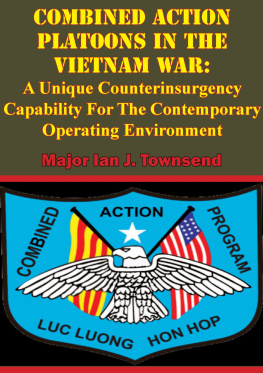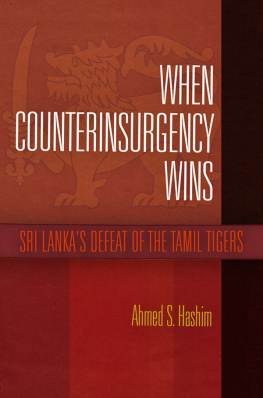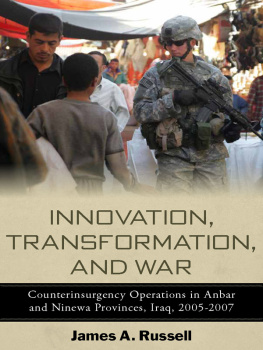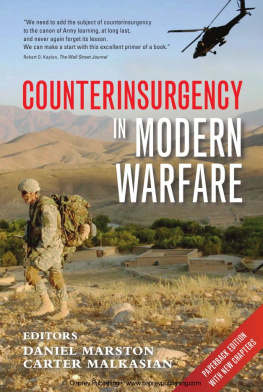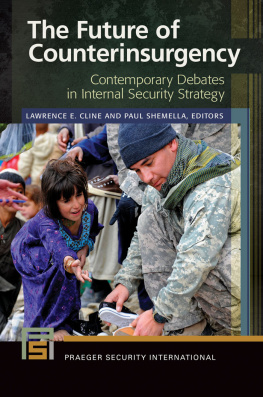
This edition is published by PICKLE PARTNERS PUBLISHINGwww.picklepartnerspublishing.com
To join our mailing list for new titles or for issues with our books picklepublishing@gmail.com
Or on Facebook
Text originally published in 2010 under the same title.
Pickle Partners Publishing 2014, all rights reserved. No part of this publication may be reproduced, stored in a retrieval system or transmitted by any means, electrical, mechanical or otherwise without the written permission of the copyright holder.
Publishers Note
Although in most cases we have retained the Authors original spelling and grammar to authentically reproduce the work of the Author and the original intent of such material, some additional notes and clarifications have been added for the modern readers benefit.
We have also made every effort to include all maps and illustrations of the original edition the limitations of formatting do not allow of including larger maps, we will upload as many of these maps as possible.
MIND GAMES: SETTING CONDITIONS FOR SUCCESSFUL COUNTERINSURGENCY MILITARY INFORMATION SUPPORT OPERATIONS
Henry B. Davis IV Major, United States Army
B.A., University of New Mexico, 2000
TABLE OF CONTENTS
Contents
TABLE OF CONTENTS
REQUEST FROM THE PUBLISHER
ABSTRACT
The purpose of this study is to determine what actions can be taken by American military forces to set conditions for conducting effective Military Information Support Operations ( MISO ) campaigns in counterinsurgency ( COIN ) conflicts. To find these actions, hypotheses built upon tenets found in American military Psychological Operations ( PSYOP ) doctrine were compared to empirical observations of PSYOP conducted in three COIN case studies from the 1950s and 1960s. Because COIN literature is ripe with assertions, such as Dr. Kalev I. Sepps, that effective, pervasive psychological operations ( PSYOP ) campaigns are inherent in successful COIN operations, it is ironic that few works discuss specific recommendations regarding the design and conduct of such campaigns. This study begins filling this literature gap by showing that MISO relationship to other operations holds greater significance in effective MISO campaign design than internal details such as the level of centralization. This finding supports contemporary calls for a more unified group of inform and influence practitioners within the United States military, as well as calls for the United States government to draft a National Information Strategy to better leverage this important element of national power.
LIST OF ACRONYMS AND ABBREVIATIONS
ARVN: Army of the Republic of Vietnam
CMO: Civil Military Operations
COIN: Counterinsurgency
JUSPAO: Joint United States Public Affairs Office
KAU: Kenyan African Union
MACV: Military Assistance Command - Vietnam
MCP: Malayan Communist Party
MISO: Military Information Support Operations (formerly known as PSYOP )
MPAJA: Malayan Peoples Anti-Japanese Army
MRLA: Malayan Races Liberation Army
NVA: North Vietnamese Army
POG: Psychological Operations Group
PSYOP: Psychological Operations (now known as MISO )
PSYWAR: Psychological Warfare (later known as PSYOP and now MISO )
USAID United States Agency for International Development
USIS: United States Information Service
ACKNOWLEDGEMENTS
The author is deeply indebted to the two most important women in his life. Ever eager to hear how this thesis was progressing, the authors mother, Mrs. Dora F. Davis, has always been an inspiration to him in many ways. The authors lovely wife, Mrs. Youn-Hee M. Davis, has always actively supported his academic activities and, in particular, kept him fed while he was sequestered in the Naval Postgraduate Schools Dudley-Knox Library working on this paper. Also, many thanks go to the aforementioned librarys helpful and courteous staff, as well as the authors peers whose encouragement and information he continues to find an i nva luable resource. Finally, great thanks go to the authors advisors in this endeavour, Drs. Hy S. Rothstein and Kalev I. Sepp, for the knowledge and wisdom they so freely shared with the author both inside and outside of the classroom.
I. INTRODUCTION
During the United States involvement in the Vietnam War from 1950 to 1975, many military resources were expended in the counterinsurgency ( COIN ) fight against the Viet Cong. One American resource in particular used in Vietnam has begun to receive renewed attention: Psychological Operations ( PSYOP ), which have recently been renamed Military Information Support Operations ( MISO ). {1} While most literature about American PSYOP in Vietnam seems to find more faults than strengths regarding its implementation, few authors have examined United States PSYOP efforts in a rigorous manner from which lessons could be derived for use in modern MISO . {2} While Dr. John A. Nagl has compared American COIN efforts in Vietnam to British COIN efforts in Malaya in his book Learning to Eat Soup with a Knife , even this work only devotes three pages to PSYOP in Malaya and fails to discuss United States PSYOP activities in Vietnam. In order to help correct this omission, this thesis examines under what conditions PSYOP successfully assisted military forces in major American and British COIN conflicts of the 1950s and 1960s. {3} As a result, this thesis not only adds to the study of MISO , but also fills the void in literature about conditions under which MISO can successfully contribute to COIN conflicts.
A. RESEARCH QUESTION
What actions can be taken by Western military forces to set conditions for successful MISO campaigns in COIN conflicts? The importance of this question is two-fold. First, compared to the voluminous number of works discussing how Western military forces like those of the United States and United Kingdom can leverage maneuver or fires to their advantage on the battlefield, very few works have been written about how these forces can leverage psychological or informational actions to gain battlefield advantages. Out of the few works that do examine PSYOP in depth like Ron D. McLaurins Military Propaganda or Colonel Frank L. Goldsteins Psychological Operations, the only work that is wholly dedicated to the conduct of PSYOP during a COIN conflict is War of Ideas: The U.S. Propaganda Campaign in Vietnam by Lieutenant Colonel Robert W. Chandler. {4} Unfortunately, most other exceptional works that are devoted to PSYOP in COIN conflicts like Dr. Robert J. Kodoskys Psychological Operations American Style or Caroline Pages The Limits of Persuasion are focused on campaign failures, which are mostly at the strategic level and do not include prescriptions for remedying these failures in future conflicts. {5} As a result, this thesis begins to fill a significant gap in the literature on MISO in COIN conflicts.
B. PURPOSE
The purpose of this study is to determine what actions can be taken by Western military forces (particularly British or American) to set conditions for effective MISO campaigns in COIN conflicts. These actions will be determined by comparing hypotheses to empirical observations of PSYOP conducted in three case studies of COIN conflicts from the 1950s and 1960s. Because COIN literature is ripe with assertions such as Dr. Kalev I. Sepps that effective, pervasive psychological operations ( PSYOP ) campaigns are inherent in successful COIN operations, this research has the potential to benefit current United States and United Kingdom military operations in Afghanistan {6} . Additionally, this research can also provide planners with greater insight on how to best support future American COIN activities with MISO .





